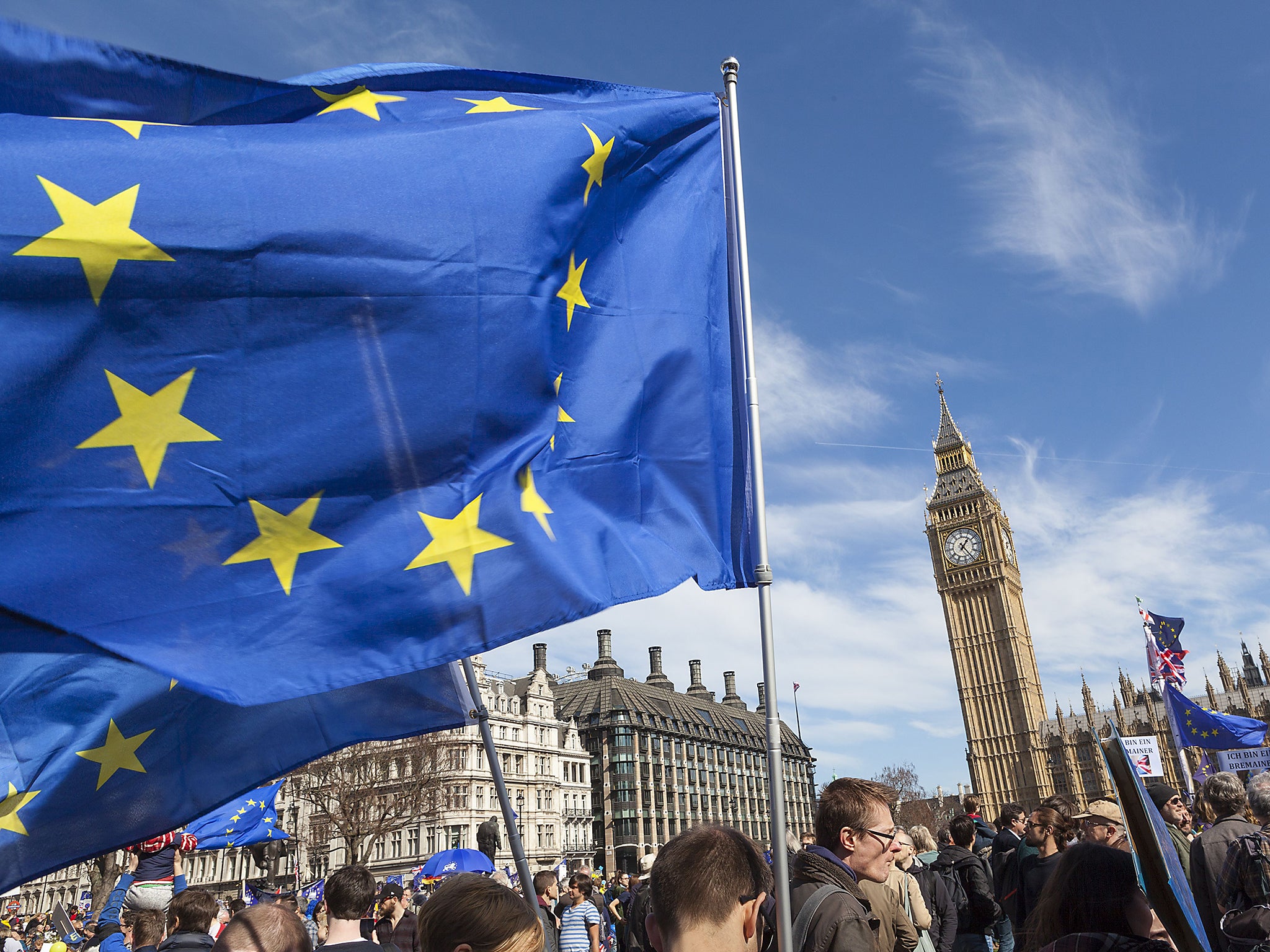Article 50 as it happened: Merkel scuppers May's Brexit strategy within hours of Article 50 being triggered
Follow all the latest updates from Westminster here
Your support helps us to tell the story
From reproductive rights to climate change to Big Tech, The Independent is on the ground when the story is developing. Whether it's investigating the financials of Elon Musk's pro-Trump PAC or producing our latest documentary, 'The A Word', which shines a light on the American women fighting for reproductive rights, we know how important it is to parse out the facts from the messaging.
At such a critical moment in US history, we need reporters on the ground. Your donation allows us to keep sending journalists to speak to both sides of the story.
The Independent is trusted by Americans across the entire political spectrum. And unlike many other quality news outlets, we choose not to lock Americans out of our reporting and analysis with paywalls. We believe quality journalism should be available to everyone, paid for by those who can afford it.
Your support makes all the difference.Welcome to The Independent’s liveblog. Theresa May has formally triggered Article 50 of the Lisbon Treaty and started the countdown on Britain’s two-year exit from the European Union.
Here are the latest updates:
- Merkel derails May's Brexit plan
- Donald Tusk to UK: 'We miss you already'
- Read Theresa May's full Article 50 letter to the EU
- Article 50 triggered
- Read Theresa May's full Brexit statement to the Commons
- Leaked EU response to Britain's Article 50 letter
- What will happen to the economy?
- Latest updates on the pound
Welcome to The Independent’s liveblog as Theresa May prepares to formally trigger Article 50 of the Lisbon Treaty and start the countdown on Britain’s two-year exit from the European Union.
Just after 4.30pm on Tuesday, Ms May signed the historic 6-page document in the Cabinet room of Downing Street below the portrait of Sir Robert Walpole – the first Prime Minister. Later today she will deliver a statement in the Commons on the Government’s negotiating strategy as well as facing Jeremy Corbyn, the Labour leader, during the weekly session of Prime Minister’s Questions (PMQs).
Around the same time, Sir Tim Barrow, the UK’s representative to the EU, will deliver the Prime Minister’s Article 50 letter to Donald Tusk, the President of the European Council, who will then make a brief statement.
The Prime Minister is expected to emphasise her “fierce determination to get the right deal for every single person in this country” and call for people to unite after the divisive and bitter referendum campaign last year.
As she prepares to invoke Article 50 and begin an arduous two-year negation to sever ties with Brussels, she added: “When I sit around the negotiating table in the months ahead, I will represent every person in the whole United Kingdom – young and old, rich and poor, city, town, country and all the villages and hamlets in between,”

“And yes, those EU nationals who have made this country their home. It is my fierce determination to get the right deal for every single person in this country.”
She said her guiding principles would be ensuring the UK was stronger and fairer than it is today.
European Commission president Jean-Claude Juncker said the UK's decision to quit the bloc was a "choice they will regret one day".
Speaking in Valletta, Malta, he also left the door open for an "associative" citizenship of the EU for Britons.
He said: "It's not my working assumption that this will happen but I know mainly the chief negotiator of the European Parliament is asking for this.
"It would not disturb me if this happened. But this cannot be the answer. It doesn't take away from Brexit all the dangers and problems. It would be an answer for citizens."
Malta's PM Joseph Muscat - who holds the six-month rotating presidency of the European Council - said it was a "bitter, bitter" day.
"There's nothing sweet about what's happening today," he added.
Now starting on BBC1, Andrew Neil will interview Theresa May and Jeremy Corbyn.
Answering a question on immigration, Ms May said: "Now obviously we want to see net migration come down. As a result of leaving the EU, we'll be able to put rules in place about the basis for which people can come in from inside the EU."
She said we will be able to "set the rules" for EU citizens coming to the UK.

Join our commenting forum
Join thought-provoking conversations, follow other Independent readers and see their replies
Comments